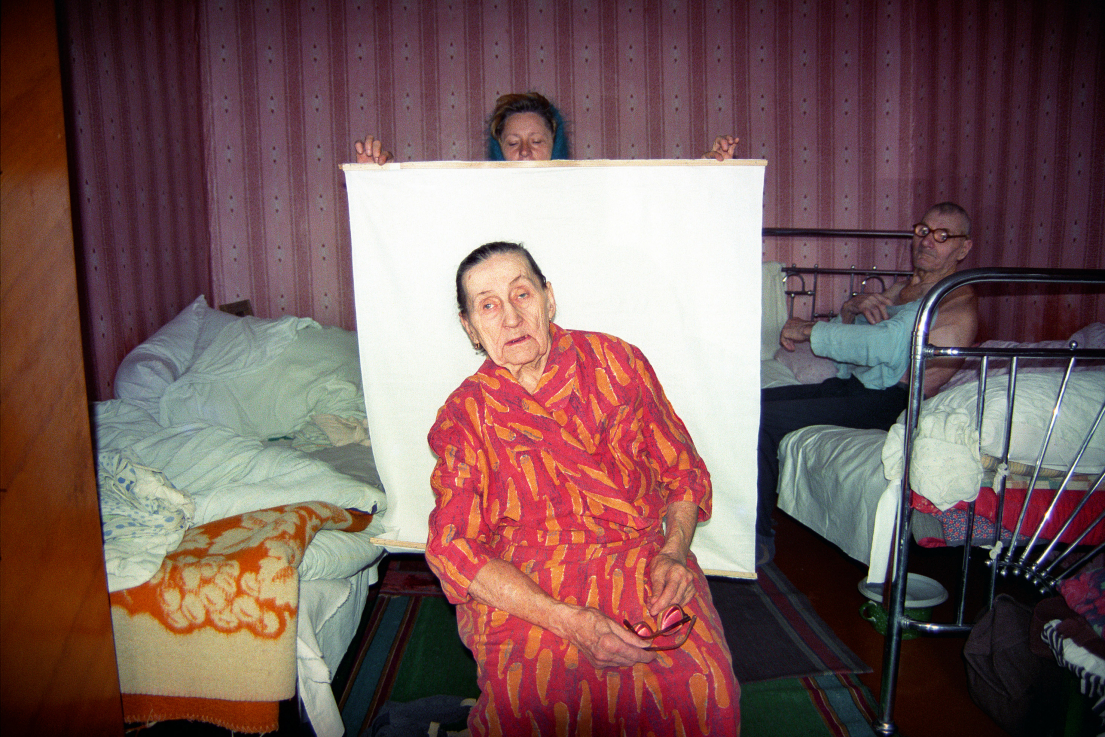„In newly independent Ukraine after the dissolution of the Soviet Union it became necessary to change the old Soviet passports to the new Ukrainian ones. There was a hurry to do this as soon as possible. All Ukrainians had to obtain new passports within a year. In 1994-1995 social services of Luhansk, which is a city in the southern east of Ukraine, started to propose photographers to take passport photos in the houses of old and ill citizens who could not get to the photo studio on their own. I was one of those photographers who walked from door to door during this national campaign of “passportization” on commission from the social services. That is exactly how I came to the houses of those people together with the social workers, who came there to provide pensioners with free medicine and food. When I saw how those people had been living out the last days of their lives I was impressed strongly. I remember a blind woman. I did not know she was blind, that is why I asked her to look at the camera, but she said that she could not see anything. I thought why would a blind person need a passport? She obviously had a very little time left. Once I took photos of almost 60 people, mainly of very old. The next day when I handed the photos out I found out that one of them had just died. I was really stunned by one of the houses. An old lady who lived there had prepared a coffin for herself. The pensioner lived in one of the rooms, the coffin – in the other one. She was, in essence, ready to go to another world at any moment. Later I had heard of a ninety-two years old man who had also bought a coffin and waited for his death. He placed the coffin in a barn, and when he finished his vodka he put the bottle into it. When the coffin was fully filled with empty bottles he presented it to someone else saying that his time had not came yet. I remember how we came to take a photo of him. He was feeling pretty well as for a ninety-years old, he sat at the table with his nephew and there were a bottle of vodka and to filled glasses in front of them. I also photographed people with mental disorders. They did not know what was going on, why were they sitting and why was I photographing them. There was one bed-bound man who needed to be raised. Two social workers kept him upright, and the other two were keeping the background. He obviously also needed a new passport. In any case, I photographed what I observed and grasped at that particular time. I do nott know if any of those people are alive. I hope that someone is, however I doubt it strongly. It was very hard to take this photos as some of the people were just crying and asked us to leave them alone. They asked why we were making them suffer as they had so little time left, and they would have been dead soon. This process took several years, but the old Soviet passports were valid till the 2000.”
Alexander Chekmenev
